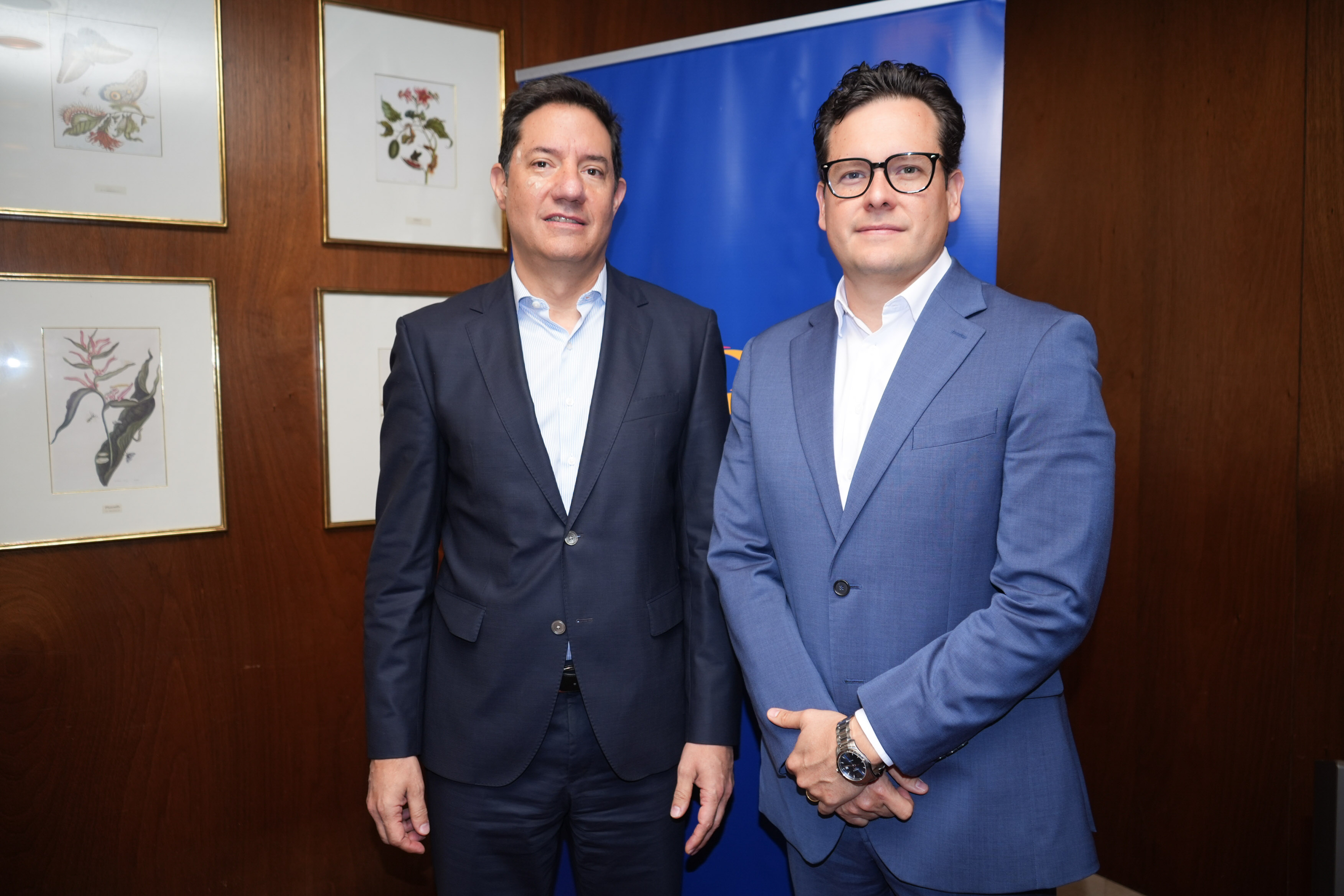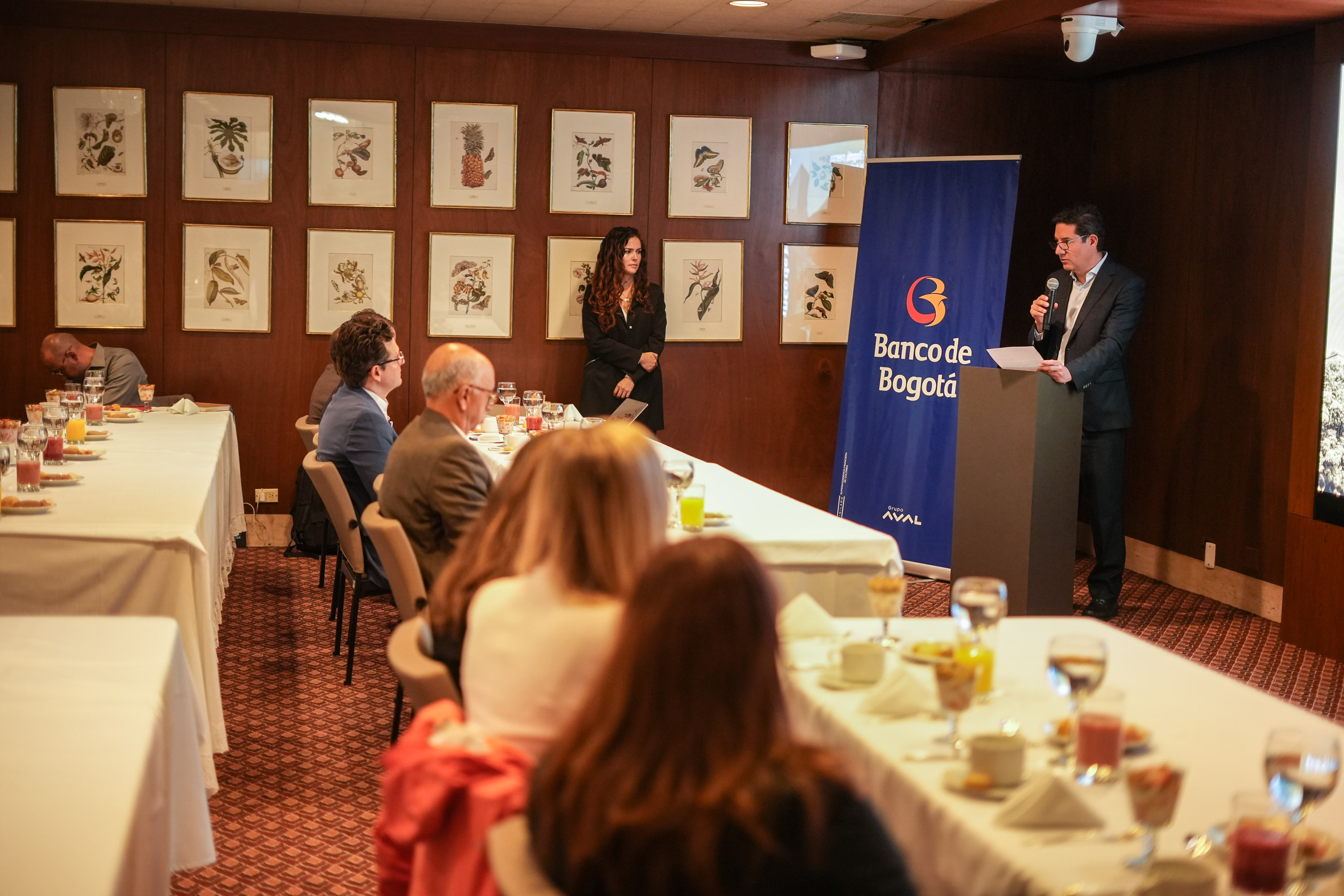Banco de Bogotá and Cotelco launch a financing and advisory plan for the hotel sector in Colombia.

At a crucial moment for the country's economic and environmental development, Banco de Bogotá and the Colombian Hotel and Tourism Association (Cotelco) signed a strategic alliance to promote sustainability in the tourism sector through green financial solutions and specialized technical support.
This initiative represents a step forward in the transformation of the hotel sector's business model in Colombia, aligning it with international sustainability standards without compromising its economic viability.
The tourism sector has proven to be a key element of national economic growth. According to DANE figures, in 2023 it generated more than 872,000 jobs and contributed $33.2 billion in added value to the economy, representing 2.3 percent of the country's Gross Domestic Product (GDP).

César Prado, president of Banco de Bogotá, and José Andrés Duarte, president of Cotelco. Photo: Courtesy of Banco de Bogotá.
Added to this is the growing international contribution: in 2024, Colombia received 6.8 million non-resident visitors, and foreign exchange earnings reached US$10.082 billion, reflecting a 12.8 percent growth compared to the previous year.
In this context, the agreement between Cotelco and Banco de Bogotá not only responds to the need to maintain the competitiveness of Colombian tourism, but also aligns with current environmental and social demands.
The alliance is built on two strategic fronts: a non-financial one, focused on technical advice and capacity building; and a financial one, focused on access to green credit.
José Andrés Duarte García, president of Cotelco, explained in a press conference that the purpose of the collaboration is to transfer knowledge and technical tools to entrepreneurs in the sector.
"We're going to work on two fronts. The first, non-financial, focuses on sharing technical knowledge and facilitating processes such as certifications and compensation. And the second, financial in nature, seeks to promote green loans, with partners and banks that allow us to offer products at preferential rates," Duarte stated.
The green offering includes, for example, credit products tailored to the needs of the hotel sector , with an emphasis on initiatives such as energy efficiency, the use of renewable energy, sustainable water management, clean mobility, and responsible infrastructure.
Support is also provided for accessing international certifications such as EDGE or LEED, essential for positioning oneself in an increasingly demanding global market regarding environmental issues.
Although disbursement targets and estimates of potential operating cost reductions have not yet been defined, Duarte emphasizes that "the bank has been working extensively with a green portfolio" and that there are concrete opportunities to access differential loans through multilateral banking funds.
These would allow hotel establishments to acquire technology that makes their operations more sustainable and efficient.
A highlight of the initiative is its technical assistance component. This first phase includes specialized support for at least 80 establishments across the country.
Support will include structuring sustainable investment projects, connecting with suppliers and strategic partners, and guidance in identifying the best available financing options.
"We want entrepreneurs not only to have access to credit, but also to understand how to strategically leverage it to improve their operations and reduce costs," Duarte said.
According to him, this transformation also opens the door to a broader conversation about economic sustainability , where hotels can become more profitable while reducing their environmental impact.
Banco de Bogotá, for its part, has committed to supporting this process through flexible financial products, for example, including grace periods adjusted to tourism seasonality.
This measure seeks to facilitate the alignment between hotels' revenue streams and their financial obligations, a key necessity in a sector marked by volatile demand.

César Prado Villegas, president of Banco de Bogotá, spoke during the alliance presentation. Photo: Courtesy of Banco de Bogotá.
For his part, César Prado Villegas, president of Banco de Bogotá, highlighted the bank's long-term focus during the press conference: "We have designed a value proposition that drives the transition toward sustainable models, promotes the efficient use of resources such as water and energy, and strengthens the adoption of good environmental practices. In this way, we generate shared value and open up new opportunities for entrepreneurs in the sector," he stated.
The alliance also includes sponsoring specialized sustainability events for the tourism sector, as well as offering certified courses that strengthen the technical and managerial capabilities of entrepreneurs, providing them with practical tools to implement structural changes in their operations.
In a country with exceptional biodiversity and an increasing influx of international tourists, the challenge of making tourism a sustainable activity is of utmost importance.
The joint initiative between Cotelco and Banco de Bogotá is a clear and ambitious response: to support entrepreneurs, protect the environment, and ensure that tourism growth goes hand in hand with environmental and social responsibility.
With these types of partnerships, Colombia is preparing for a future in which tourism is not only a source of employment and income, but also an exemplary driver of sustainability.
ANGELA MARÍA PÁEZ RODRÍGUEZ - SCHOOL OF MULTIMEDIA JOURNALISM EL TIEMPO.
eltiempo





